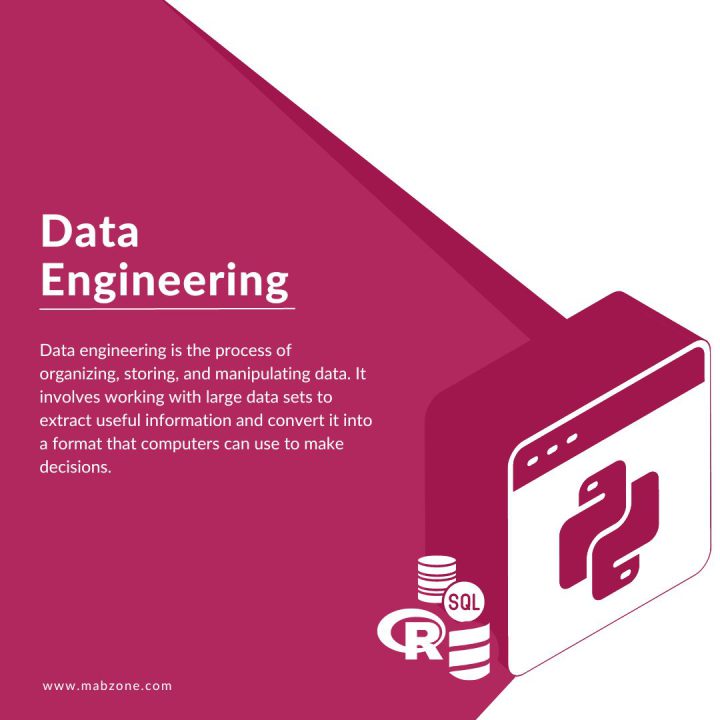- info@mabzone.com
- Mon - Sat: 8.00 am - 11.00 pm IST
We are creative, ambitious, and ready for challenges! Hire Us
We are creative, ambitious, and ready for challenges! Hire Us
Hire a dedicated development team for your project. Unlock expertise, efficiency, and success. Get started now!
D-176, Skytech Business Tower, Phase 8B, SAS Nagar, Mohali, Punjab, India
info@mabzone.com
+91 -9878-77-2492

Data engineering is the process of organizing, storing, and manipulating data. It involves working with large data sets to extract useful information and convert it into a format that computers can use to make decisions.
The role of data engineering in data science is crucial since it involves preparing the data to be analyzed. With properly organized and clean data, meaningful insights could be obtained.
Many steps are involved in data engineering, including data cleaning, feature extraction, feature engineering, and model building.
Each step requires a different set of skills and knowledge, which is why data engineers must be well-versed in various programming languages and tools.
In data engineering, Python, R, SQL, and Scala are some of the most commonly used languages, although other languages can be used depending on the project’s needs.
Data engineering aims to ensure that businesses and organizations can effectively use data.
There are four main steps in the data engineering process:
The role of data engineering in data science lies in enabling data scientists to analyze large, complex datasets.
Various tools and techniques are used in data engineering, depending on the project’s requirements.
Data engineering projects can be complex, and several challenges can be faced when implementing them. Here are some of the most common challenges:
If you are searching for a top-notch data engineering company, MABZONE is the one to go for! Our software development team provides:
End-to-end services.
We specialize in catering to medium and large enterprises as well as product start-ups, offering appropriate solutions no matter the complexity of their project. Scalability, efficiency, reliability, security, and selection of the right tools for your big data setup – we’ve covered it all!